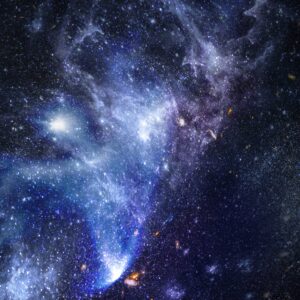
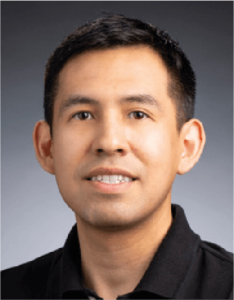
Dr. Juan Ojeda Romero is a mission design engineer in the Space Astrodynamics and Controls group at Johns Hopkins University’s Applied Physics Laboratory (JHU/APL). He is currently supporting a variety of mission concepts and studies for both Civil and National Security Space. Prior to his current role, Dr. Ojeda Romero worked at a.i. Solutions, Inc. in the Flight Dynamics team supporting various NASA missions at the Goddard Space Flight Center. His personal research interests include new AI applications for mission design and navigation and applying dynamical systems theory to complex gravitational environments. He received his B.A. and M.S. in Aerospace Engineering from Virginia Tech and his PhD in Aerospace Engineering from Purdue University.
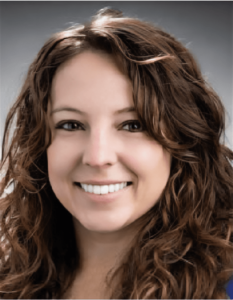
Dr. Corinne Lippe is a section supervisor and the Technology Development Lead for the National Security Space Mission Area in the Space Exploration Sector at Johns Hopkins University Applied Physics Laboratory. Dr. Lippe has served as a G&C engineer on the IMAP and Dragonfly missions. She has also provided G&C, Mission Design, and Navigation support for a variety of civil and national security projects and proposals. She received her B.S In Mechanical Engineering from Cornell University and her M.S. and Ph.D. in Aeronautics and Astronautics from Stanford University, where she was supported by the National Science Foundation and the Stanford Graduate Student Fellowships. Her thesis focused on spacecraft swarming and formation flying in both planetary and asteroid orbits.

Dr. Brenton Duffy is a section supervisor in the Space Astrodynamics and Controls group at Johns Hopkins Applied Physics Laboratory. He is currently the Guidance and Controls (G&C) lead for the Interstellar Mapping and Acceleration Probe (IMAP). Prior to his current role, Dr. Duffy served as a G&C engineer for the DART and Parker Solar Probe missions and also provided mission design engineering support to a variety of civil and national security space research and mission concept development. He received his B.S. in Aerospace Engineering from North Carolina State University and his M.S. and Ph.D. in Aerospace Engineering from the George Washington University. His academic interests include dynamical systems theory, multi-body dynamics, formation flying and advanced controls theory.
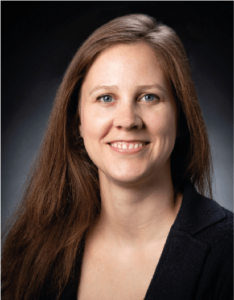
Dr. Amanda Haapala is a section supervisor and a mission design engineer in the Astrodynamics and Controls group within APL’s Space Exploration Sector. She is currently supporting IMAP mission design and navigation, and is active in the development of a number of concept design studies, related to both civil and national security space. Her research interests include autonomous mission design and navigation, including autonomous path-planning and orbit station-keeping, moon-tour design, dynamical systems theory and Cislunar trajectory studies, and she is active in both software and algorithm design. Dr. Haapala received her B.A. in Physics from Towson University, and her M.S. and Ph.D. in Aerospace Engineering from Purdue University. She is a mother of two young boys, an avid nature-lover, and is passionate about outreach, both as it relates to DEIA, as well as to the mental health challenges faced by so many people living in modern society.

Dr. Wayne Schlei is a Mission Design Engineer in the Astrodynamics and Controls group within APL’s Space Exploration Sector and has recently held Primary Investigator roles to several cislunar dynamics research and development projects for the National Security Space Mission Area. In this role, Dr. Schlei has also assisted in the studies and proposals for several spaceflight missions—including Dragonfly and Interstellar Probe—and served as Deputy Mission Design Lead on New Horizons during the Arrokoth (Kuiper Belt Object) encounter. His personal research interests include astrodynamics, autonomous path-planning, computer science, AI/ML applications, computer graphics, visualization, dynamical systems theory, formation flight, and combinatorial optimization. Dr. Schlei earned a B.S. in Aerospace Engineering from Iowa State University, and an M.S. and Ph.D. in Aeronautics and Astronautics from Purdue University with a focus in Astrodynamics and Space Applications.
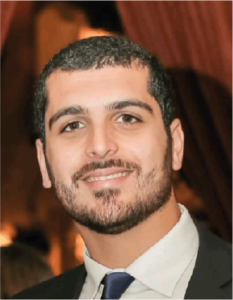
Mr. Fouad Khoury is a spacecraft mission design and navigation engineer in the Space Astrodynamics and Controls group at Johns Hopkins University’s Applied Physics Laboratory (JHU/APL). At APL, he works on space missions for both the Civil Space and National Security Space communities. Prior to his current role, Fouad worked at the NASA Johnson Space Center in Houston, Texas and the Air Force Reserach Laboratory in Albuquerque, New Mexico. His research interests include spacecraft proximity operations, Cislunar mission design, and statistical orbit determination. He recieved his B.A. and M.S. in Aeronautical and Astronautical Engineering from Purdue Unviersity.
1-Day Workshop
8 a.m. to 4:30 p.m.
JHU Applied Physics Laboratory
11100 Johns Hopkins Rd
Laurel, MD 20723
May 19, 2025
$1,400 / person
Please complete the registration form below to enroll in this workshop. After you register, you will receive a confirmation email with details about the workshop. We will also send you an email to complete the JHU Tuition Remission form if that is how you intend to purchase the course. If you do not intend to use JHU Tuition Remission, the cost can be paid via Credit or Invoice. If you have questions before registration, please reach out to us.